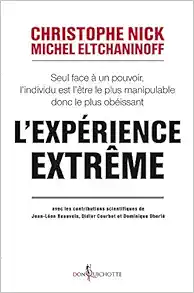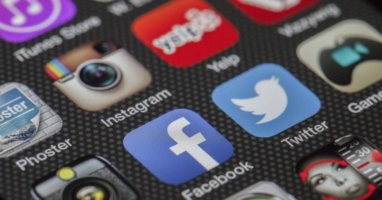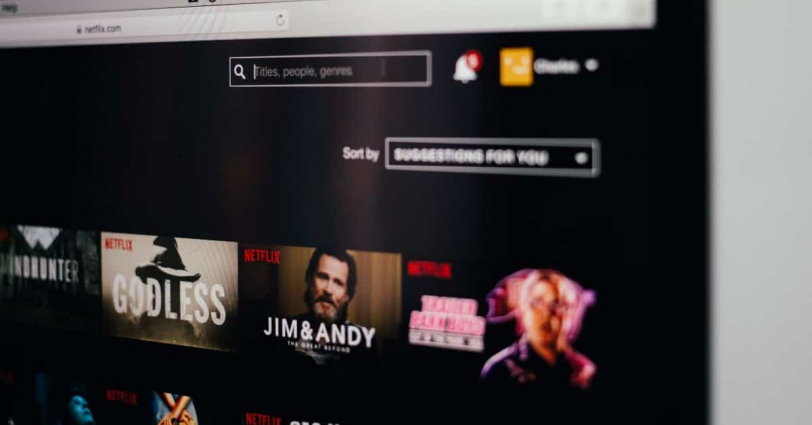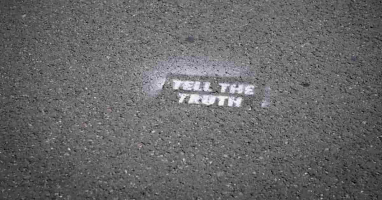I wrote this article in Japanese and translated it into English using ChatGPT. I also used ChatGPT to create the English article title. I did my best to correct any translation mistakes, but please let me know if you find any errors. By the way, I did not use ChatGPT when writing the Japanese article. The entire article was written from scratch by me, Saikawa Goto.
Introduction
Movies and books covered in this article

Three takeaways from this article
- A TV station conducted a modern version of the Milgram experiment, which originated from Eichmann, involved in the Jewish genocide in concentration camps.
- People who tend to blindly believe information on platforms like YouTube and Instagram should read this book.
- The experiment took over two years of preparation. It may not be possible to do the same in Japan.
Self-introduction article


Published Kindle books(Free on Kindle Unlimited)
“The genius Einstein: An easy-to-understand book about interesting science advances that is not too simple based on his life and discoveries: Theory of Relativity, Cosmology and Quantum Theory”
“Why is “lack of imagination” called “communication skills”?: Japanese-specific”negative” communication”
The quotes in the article were translated using ChatGPT from Japanese books, and are not direct quotes from the foreign language original books, even if they exist.
Everyone Should Read This Shocking Experiment. It’s Doubtful that Japanese TV Could Do the Same Thing

This book is something that everyone in the world should read, at least those who have come into contact with some form of media such as television, YouTube, and newspapers.

The book contains important knowledge, especially in today’s world where the internet has a strong influence, that points out the possibility that we may unintentionally exhibit unexpected “cruelty.”

“Milgram Experiment” Conducted on a French TV Program
In 2009, a shocking experiment was conducted on a French TV program. Let me briefly introduce the experiment.
Participants were carefully selected without any bias and gathered as “quiz show questioners” for the pilot episode of a fictional quiz show (explained as a trial recording before the actual broadcast, with no actual prize money). The “quiz show questioners” read the questions in the studio, and the “responders” were given an electric shock if they answered incorrectly.
The point of this experiment was that the “quiz show questioners” had to press the switch to give the electric shock. The voltage of the electric shock increased with each incorrect answer, and the situation was suggested to be dangerous for the “responder’s” life when the voltage reached its maximum.
In fact, the “responder” was a collaborator in the experiment, and no electric shocks were actually given. The “responder” pretended to receive an electric shock with each incorrect answer and created an atmosphere of “I might die like this.” Of course, the “quiz show questioners” had no idea that it was an act.
So, what percentage of the “quiz show questioners” gave the electric shock up to the maximum voltage in this situation?

You may have heard of the famous psychological experiment known as the “Milgram experiment.” In this experiment, the TV show recreated the experiment in which they replaced the original context with the TV environment.
The “Milgram experiment” was prompted by the question, “Can Eichmann, the Nazi German who massacred Jews in concentration camps, be considered cruel?” and was intended to investigate the following questions.
How much individuals obey orders that go against their conscience when they come from an authority figure?
This is an experiment whose name would be known beyond the world of psychology.

In a French TV program’s experiment, the goal was to investigate “Are people easy to obey?” just like in the “Milgram experiment.” At the same time, they also wanted to check if “TV has authority.”

periment conducted by Milgram using the authority of a “doctor,” about 60% of the subjects administered the maximum voltage electric shock. So, what about the experiment conducted in the TV program?

It’s shocking, but 81% of the “questioners” administered the maximum voltage electric shock to the “responders.”
This number is quite shocking. Because it shows that “most people will submit to authority.” It would be hard to say, “Only I wouldn’t do that.”

If you were put in charge of a concentration camp like Eichmann, you might have massacred Jews on a massive scale like him. You might think, “That’s impossible!” but psychological experiments clearly show that possibility.
The experiment was actually broadcast in France under the title “L’experience extreme,” the same title as this book. While Japan has prank shows involving ordinary people, I don’t think similar experiments could be done on Japanese TV. I think it’s a daring plan to air on terrestrial TV. I don’t know about France, but I feel like there would be a lot of complaints from viewers in Japan.
My vague impression is that France is a country with a strong sense of individualism and dislikes “obedience to authority.” Even in such a country, 81% of people gave the maximum electric shock. If the same experiment were conducted in Japan, the percentage could be even higher.
And this book is a detailed report of the experiment conducted by a French TV station.

Book Structure
Let’s briefly touch on the structure of this book.
This book was co-authored by a TV producer who came up with and realized the experiment, and a journalist (who is also a philosopher) who assisted in the experiment’s construction. From the planning stage to the experiment process and analysis of the final results, various aspects of the “modern Milgram experiment” are discussed in detail.

This book is divided into three parts.
The first part talks about the planning and execution of the experiment. The producer came up with the idea for the experiment because he was concerned that TV had become too extreme. He wanted to see how much of an “authority figure” TV was to people.
So, they decided to conduct a modern version of the famous “Milgram experiment”. In the first part, the book covers how they prepared for the experiment and how it progressed.

In the second part, a detailed analysis of the actual results is conducted, capturing the actions and conflicts in the minds of individual subjects to understand how people succumb to authority.
The third part concludes with an overall discussion of the experiment and an overview of the “power” held by television.

The “Extremeness of TV” Depicted in This Book is Similar to the “Extremeness of YouTube” in Modern Times
In this book, “TV” is treated as an “authoritative existence.” However, what is important in this book is not whether it is “TV” or not. Rather, the main issue is how people can be submissive to an “authoritative existence,” whatever it may be.
In other words, “TV” in this book can be compared to “YouTube” or “Instagram” in modern times, since all of them are created based on the criterion of “anything goes if it’s interesting.”

In this book, various “crazy TV shows” from all over the world are introduced. I was surprised to learn that there are countless programs that would be considered unacceptable in Japan. Let me introduce some of them.

A British TV show featured a magician playing Russian roulette with a real gun on a 5-second delay live broadcast. The plan was to guess where the bullet was loaded in the gun with only one round, and the magician actually pointed the gun at himself and pulled the trigger.
A crime investigation show from Brazil where the host himself surprisingly is involved in drug trafficking. He then hires gang members to try to assassinate a rival organization’s boss. The gang actually kills the boss, and the show’s cameras rush to the scene before the police do, capturing the body on camera.
A Spanish proposal show where a woman is invited to the studio and told that the man she has been admiring will appear. However, the man has been stalking her for years, and the woman has been living in a shelter to escape him. The show deceives the woman while knowing this fact and has her appear on the program, and she is eventually murdered a few days later.
What do you think? These are TV programs that are incomprehensible and deviate from common sense. This book presents various specific examples like these. It is natural for the author to feel a sense of crisis and start thinking about “the authority of TV.”

These descriptions were in 2009 and it’s unknown how TV programs around the world have changed since then. However, the TV environment in Japan has undergone a big transformation, such as BPO (an organization that voluntarily makes various recommendations to Japanese television programs from an independent third-party standpoint) announcing a review of “laughter with painful” in TV. Hence it may be difficult to truly feel the “extremeness of TV” as pointed out in this book.
On the other hand, some people may imagine “YouTube” as a place where such extreme content can exist. Although inappropriate accounts can be “BANNED” on YouTube, it is still a platform where ideas such as “doing things that cannot be done on terrestrial TV” exist, and therefore, it can be said that there is still more extreme content on YouTube than on TV.
This book examines whether TV has “authority” or not. In today’s age, it should also be examined whether “YouTube has authority” or not. Instead of saying “I don’t watch TV anyway,” I think if you read this book with the perspective of “what if we replaced TV with YouTube?” you will have a different perspective.

The Experiment was Carefully Prepared Over a Period of Two Years
This book also describes in detail how the experiment was prepared. By reading it, you can truly feel that it was planned very carefully.


For example, in order to ensure the experiment conditions were identical, even the treatment of participants was meticulously specified. Here’s an example: participants would take a taxi to the TV station, but the driver was instructed to turn up the volume of the radio so that the participants would not talk to the driver. This was to eliminate the possibility of experimental results being affected by whether or not the subjects spoke to the driver.
This episode would make you realize how much attention was paid to every detail. Under the supervision of experts, such considerations were made to realize the situation of “accurate and objective data can be obtained if such conditions are set up” in various situations.

Furthermore to create an atmosphere of an actual quiz show, real producers and screenwriters were involved in the experiment. This is an important factor in proving whether “TV has ‘authority’.” By making participants recognize that “this is a TV program,” they may engage in behaviors they would not normally do, but would do on TV. The “realistic TV show-like” feel is important for verifying this.
Furthermore, as mentioned at various times in this book, “psychological care for the participants” was a top priority during the experiment. This is most evident in the fact that the participants were disclosed spoilers immediately.

From a psychological perspective, it is supposed to be possible to gain more insights by not immediately revealing the fact that it is a psychological experiment instead of a TV show, and instead investigating the participants’ emotions after some time has passed. However, they did not do so this time. They prioritized the care of the participants’ emotions over all of the potential data that could have been obtained.
Certainly, even if it is part of the experiment, having to cope with the fear that the person in front of you may die would be very painful. In this experiment, 19% of the participants stopped giving electric shocks during the process, but only one person was able to stop without any conflict at a relatively early stage. The rest of the participants struggled with various conflicts and hesitations as they advanced to a significant voltage before ultimately not administering the maximum voltage electric shock.

In this book, detailed descriptions of how the participants reacted are provided, but their behavior varied and cannot be generalized. Since mental burden is invisible, prioritizing its care was important.
Furthermore the book also describes various “variation experiments.” The 81% figure is from the “basic experiment,” and multiple experiments with slightly different conditions were planned and conducted. This was done to determine the essence of the “authority” that television holds.

Please read this book for more details, but in the “variation experiments” where the conditions were changed slightly, the obedience rate often decreased. Since all other settings were identical, it is clear that this change is related to the “authority of television.” In this way, they revealed the essence of the “power of television.”
What can be understood from this experiment is that the cause of obeying and committing violent acts is not “human weakness.” This point is repeatedly described in this book. And this is not limited to television or YouTube. Whatever it may be, if a person feels that the existance is an “authority,” everyone will commit violent acts, and that is an essential human behavior.
It is certainly not someone else’s problem.

What do You Feel is an “Authority?”
The ultimate goal of this experiment is to confirm whether there is “authority” in television, and the figure of 81% clearly shows that “authority” exists in television.

Of course, this would change depending on the times. Even if the same experiment is conducted now, the number may not reach 81%. This is because the power of “television” seems to be fading compared to a decade ago. Some young people do not have a TV at home, and many may only watch “YouTube” or “non-terrestrial programs.”

What people consider as “authority” can vary depending on the times and individuals. Therefore, it’s not enough to just dismiss it with the statement, “I don’t watch TV, so it doesn’t concern me.”
In this book, “TV” is treated as an “authority,” so it is the main focus of this article. However, I would like each of you to read it while imagining “your own object of authority.”

I have been fortunate enough to have been featured on TV programs, including national broadcasts, several times due to certain circumstances. Also, when I lived in a certain regional city, I was able to appear on the local TV program quite a bit.
What I often felt at that time was the sense that “I had to exist as an essential member to make the program a success.”
I have never been fond of anything “authoritative” in general and have lived my life rebelling against seniors, bosses, and organizations in various situations. I have calmed down a bit since becoming an adult, but I still don’t like situations where “I have to follow the strong.”

So, I have decided not to do anything that I don’t want to do, whether it’s on TV or elsewhere. However, within the range that I can accept, the idea that “I must do what the production side wants” is there. This book also has a sentence like this.
In the hearts of the subjects, the feeling of ‘I have to do what I was told to do because I made up my mind to participate’ had already sprouted at the time of the decision.
In other words, it means that they end up feeling like “I have to do what I can to make the TV program work.”

You may not ring a bell with the phrase “submit to ‘authority’,” but they might get it if I explain it as “doing what needs to be done to make the TV program work.” And it is within this mindset that there is an action of “giving the maximum voltage electric shock.”
As someone who was deeply involved in this experiment, I have one thing to say. People are not as strong as they think they are. The more they believe that “I act based on free will and won’t easily obey authority,” the more easily they become controlled and submissive to authority.

When you hear the word “obedience”, it might not sound like something that happens in everyday life, but it can include things like borrowing money for someone you like even if it means going into debt or being controlled by a toxic parent. It can even include relationships like that between an idol and their fans, which could be seen as a form of “obedience”. And when someone or an organization that you feel you cannot ignore gives you an order, obedience can make people become incredibly cruel.
Understanding this fact is extremely important.

Conclusion

In today’s world, there are many so-called “influencers” and “originators about self-help,” who I call “PUCHI KYOSO (petit guru).” It’s easy to fall into a state of “submission” in our relationships with these people.
Anyone can face this danger, but those who receive various information with the stance of “that person said it, so it must be true” should be especially cautious. This is because they are already halfway into a state of “submission.”
I would like you to read this book and imagine what you feel “authority” to, and what you would do if you were ordered to do something by that “authority.

Published Kindle books(Free on Kindle Unlimited)
“The genius Einstein: An easy-to-understand book about interesting science advances that is not too simple based on his life and discoveries: Theory of Relativity, Cosmology and Quantum Theory”
“Why is “lack of imagination” called “communication skills”?: Japanese-specific”negative” communication”







コメント